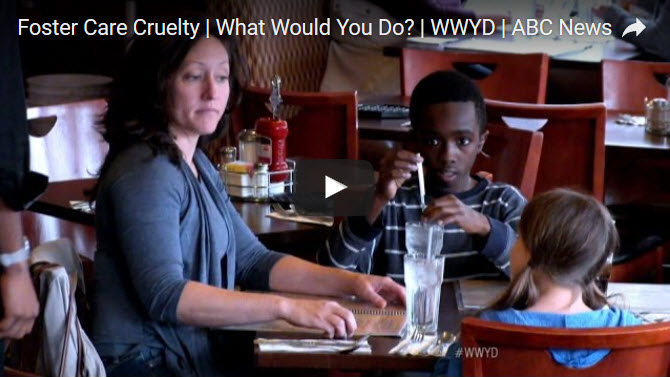Last month, I attended the conference of the National Court Appointed Special Advocate (CASA) Association in Washington D.C. I am a former CASA advocate and CASA program director. I continue to serve on the board of directors of CASA of New York State and I am member of the National CASA Curriculum Development Committee. In short, I was on familiar turf and proud to be attending the conference of an organization in which I believe.
CASA, in you don’t know, screens, trains and supervises volunteers who are paired with a child in foster care. Appointed by the court, these advocates report to the court, offering feedback about what they believe is in the child’s best interest and prodding the system to do better for children. CASA, as an organization, should be well aware of the positives, shortcomings and stereotypes within our child welfare system.
Among the keynote speakers was ABC News correspondent John Quiñones. “Cool,” I thought, “a Latino man speaking to a group of child advocates, sharing his wisdom with us.” Quinones started out with a short introduction, talking about the challenges he faced as a child and how we got to where he is today. He also talked about his current show, What Would You Do?, setting up a clip about foster care from a recent episode. My first reaction was excitement because he brought our issue to a national audience. And then, I thought about the show and wondered, what could the setup be? A sinking feeling began to take hold – with good reason, it turned out.
The segment Quinones showed disappointed me. A white actress played the role of a foster mother sitting with a young actor playing the role of her daughter (also white) and another actor (this one African American) playing the role of her “foster son.” What unfolded (see for yourself) in a crowded New Jersey diner was nine minutes filled with pernicious stereotypes about foster parents – primarily that they are in it for the money and that they treat the children in their care as “less than.” My “favorite” quotes: “This is a job, me taking care of you” and “If I adopted you, I would stop getting paid” (likely just plain wrong). The only positive I could find in the scenario Quinones boasted about was that people in the restaurant stepped up and dressed down the foster mother.
As the clip ended, I felt deflated because this smart investigative journalist had an opportunity to educate the public about foster parents – how they give to the children in their care, often without all of the support they need; how they love them like their own, knowing they may have the heartbreak of having to say goodbye; how they, day by day and bit by bit, turn a child who believes they are unlovable into someone blossoming from the love they find in their foster home. Instead, Quinones pandered to the most base stereotypes and put them out there with the imprimatur of ABC News. And . . . because the scenario showed that ordinary people will stand up to the “bad” foster parent, Quinones thought he did a good thing.
I wanted to leave in disgust, but I did not. I waded my way through the room to Mr. Quiñones, waited my turn, introduced myself and explained how troubled I was about the message his piece conveyed. He said something like, “What, that people will intervene on behalf of a child? Isn’t that what CASA does?” I explained that his piece reinforced powerful negative stereotypes about foster parents. He looked surprised. “For example,” I said, “this coming school year, as teachers who saw this review their class rosters and see that one of the children in their class is in foster care, you can bet they will eye the foster parents suspiciously, at least initially. That’s the type of damage this piece does.”
As people who care about children in care, as allies and as foster parents ourselves, we have to speak up each time one of these stereotypes about us gets thrown about. We have to challenge and speak the truth about our commitment, the healing and nurturing we give to our nation’s most traumatized children and the lack of support we get. I hope you’ll join me in doing so the next time you have the opportunity to educate others about the reality of being a foster parent.

